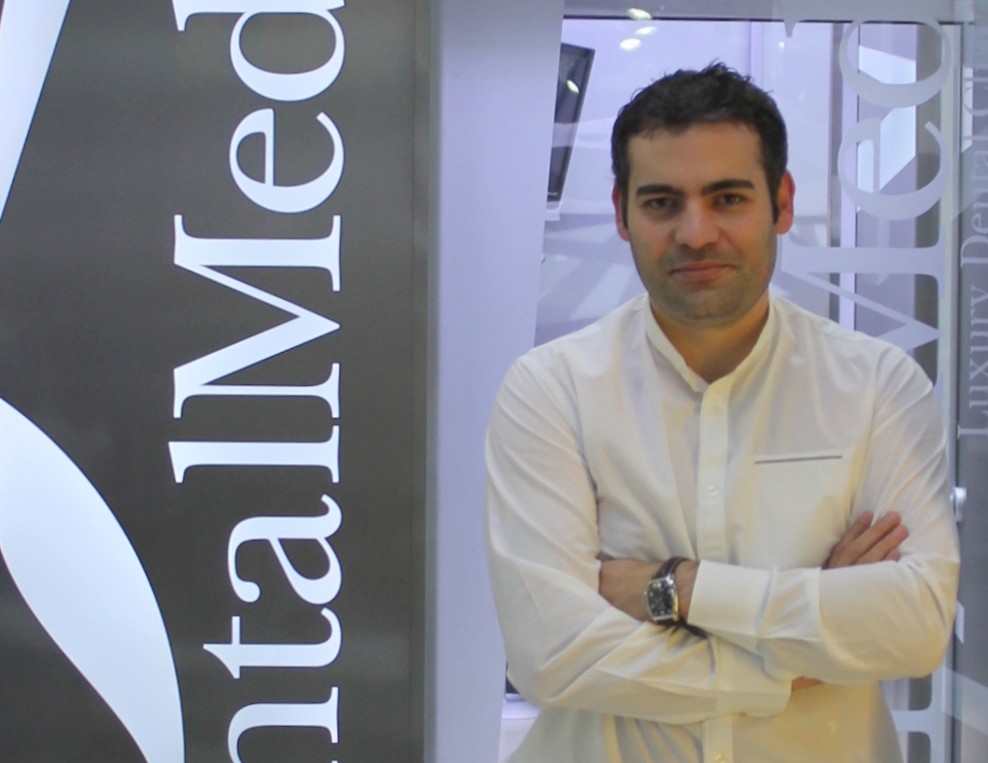DentalMed: Foreigners sink their teeth into Romania's fragmented dental services market


Romania is one of the up and coming destinations for so called dental tourism and foreigners are slowly starting to bring a bigger share of revenues for local dental clinics. Foreigners are not only the clients on this market, they are also coming here to open dental clinics or work in the private system, and should the trend continue, the market could see more foreign personnel in dental clinics in a couple of years. Dragos Popescu (in picture), co founder of the Dental Med dental clinic in Bucharest talked to Romania-Insider.com about the dental services market and his clinics' plans over the next five years.
Foreigners make 30 percent up of the clients of the DentalMed clinic in Bucharest, 20 percent of which are expats living in Romania, and 10 percent come from abroad especially for treatment in Romania, Dragos Popescu, founder and General manager of DentalMed, told Romania-Insider.com. This means that of the 5,000 patients treated yearly in the clinic, around 1,500 are foreigners. The ratios are higher than the general estimations for the niche market that foreigners have created in the local dental services sector, which are somewhere between 5 and 10 percent, according to Popescu.
He estimates the local dental services market is worth some EUR 250 to EUR 350 million a year, which would put the foreigners' niche at some EUR 25 to EUR 35 million. Only a handful of dental clinics in Romania, most of them located in Bucharest, have the logistics capacity to treat foreigners, according to Popescu.
Things are poised to change however. Popescu expects to see the number of foreign clients increasing, as many people from Western Europe discover up to standard services in Eastern Europe at lower prices than in their home countries. He estimates the tariffs for dental services in Romania are 20 to 40 percent lower than in Western Europe. The country was a later addition to the Eastern European map of dental services, as “prejudices towards the Eastern European space significantly contributed to this delay,” the Dental Med founder explains. In return, dentists in Western Europe are coming up with more advantageous price packages, to keep up with the Eastern European competition.
The coming years could bring the entry of some large dental companies in Romania, which would either take over local players or set up shop from ground up, Popescu expects. Then, small neighborhood dental practices will suffer, but that could only happen in five or ten years, as the market is still young. In ten years however, Romania could have a EUR 1 billion dental services market, from the estimated current level of EUR 350 million.
The market is fragmented, with over 2,500 private dental clinics in Bucharest alone. This private system developed independently from the public health system and, despite having been also affected by the migration of staff, it also welcomes some foreign doctors as well. “All these migrations are usually balanced off via mechanisms harder to control, and time could bring us bigger surprises: it's possible to have medical assistants from China, India and the Philippines in 10 to 20 years working in Romania,” Dragos Popescu told Romania-Insider.com.
For many foreigners, setting up shop in Romania is a once in a lifetime opportunity, as the dental markets in their home countries are already saturated. The DentalMed founder, who works with a mixed team of Romanian and Israeli doctors, says it is not uncommon to find Italian, Israeli, Spanish, Greek dentists working in Romania.
Romanians on the other hand are less adventurous and entrepreneurial, and one thing to blame could be school, which does not focus enough on personal development and entrepreneurship. “So the perspective of higher salaries in Western Europe as employees becomes more attractive for Romanian doctors than opening a private business in Romania,” Popescu explains. He and his partner Razvan Popescu recently extended DentalMed with an investment of EUR 1.5 million. Dragos Popescu hopes to see its turnover advancing to some EUR 5 million in five years, from an estimated EUR 2 million turnover at the end of this year. The Romanian investors chose to focus on a single location for their clinic, and plan to expand it with a kids clinic on the second floor of the existing unit in 2013.
Corina Chirileasa, corina@romania-insider.com
(photo source: Dental Med)












